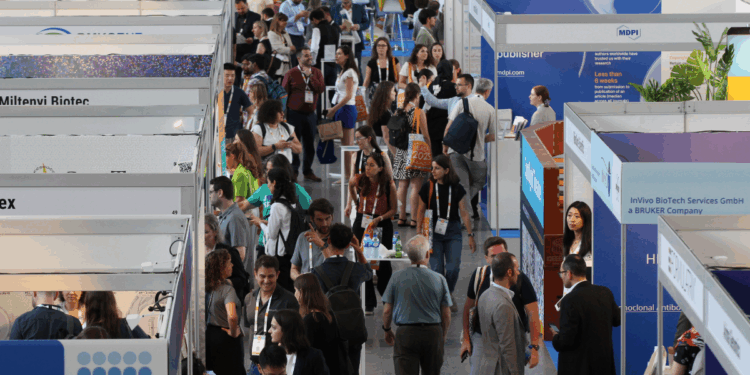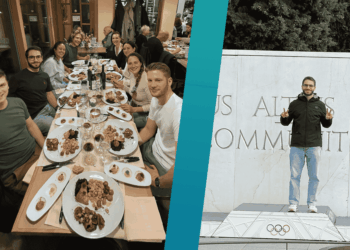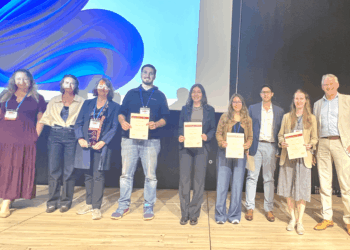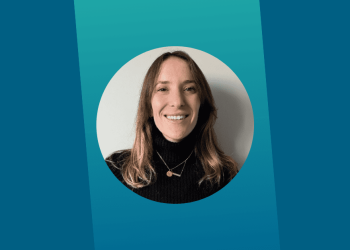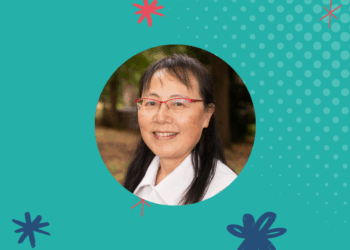The opening of registrations and abstract submission is just around the corner for the EACR 2026 Annual Congress, so what better time to reflect on our Travel Grant winners’ experiences of EACR 2025 that took place earlier this year in Lisbon, Portugal. The event was praised for its host of world-class speakers, diversity of topics in the scientific programme, and abundance of meaningful networking opportunities spanning the four days.
Read on to hear from several Travel Grant recipients who received financial assistance to participate in the Congress. Click here for a Congress highlights summary.
1. Farid Cury Neto
PhD student, Barretos Cancer Hospital, Brazil
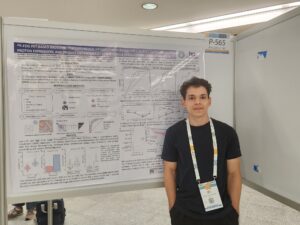
At the congress, Farid particularly appreciated reconnecting with researchers he had met at a previous EACR meeting in Bilbao and seeing how their projects had evolved. “It was incredibly rewarding to reconnect with researchers I had met last year,” he says, “and to present my project again with more mature results than before.” He also valued the event’s smooth structure, noting how the congress app, thoughtful venue layout and welcoming organisation made navigating sessions and networking both manageable and enjoyable.
The poster sessions offered valuable scientific exchange and potential future collaborations with peers working on closely aligned topics. Inspired by standout talks from Dr. Raza Ali and Dr. Dana Pe’er on tumour microenvironment and cellular plasticity, he returned home excited to explore these ideas further. “I shared my excitement about the discussions around cellular plasticity and the dynamic tumour microenvironment,” he says, “and I hope to join again in future editions.”
2. Rita Barbosa-Matos
Postdoctoral researcher, Institute for Research and Innovation in Health (i3S), Portugal
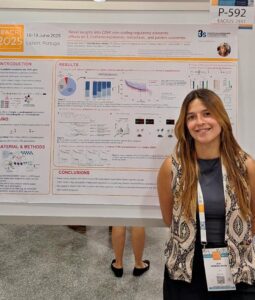
Rita’s congress experience was defined by the outstanding scientific programme and high-quality speakers. “The programme was high-quality but not overwhelming,” she reflects, noting that the smooth organisation and easy room navigation made it possible to stay engaged all day.
She particularly enjoyed the EACR member space, where she reconnected with colleagues and met new researchers, as well as the well-organised poster sessions that encouraged meaningful discussions. A highlight was learning about new bioinformatic tools from Dvir Aran, which she has already begun applying in her work. “The quality of the posters and talks, especially those by Charles Swanton and Ellen White, was truly inspiring,” she says.
3. Ahmad Melhem
PhD student, University Clinic Bonn, Germany
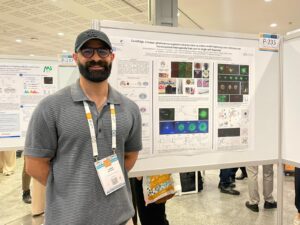
Ahmad described the congress as a uniquely energising experience, surrounded by researchers who shared his passion and curiosity. A standout moment was his interaction with 10x Genomics representatives: “They were generous with their time and even provided live demonstrations,” he says, “which really deepened my understanding of their platform.” He also highlighted the chance to learn from pioneers such as Johanna Joyce, Dana Pe’er and Frank Winkler, calling the speaker lineup one of the most inspiring he has encountered.
Outside the scientific sessions, he embraced Lisbon’s history, exploring landmarks like Belém Tower, Jerónimos Monastery, and the Santa Justa Lift. The meeting also reinvigorated his commitment to glioblastoma research. Seeing the global momentum in his field strengthened his confidence and sharpened his vision: “The congress made me feel more connected to the wider research community and more confident in the value of my own work.”
4. Camila Castillo Ferrer
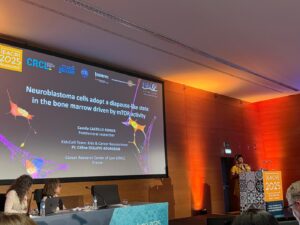
Postdoctoral researcher, Cancer Research Center of Lyon (CRCL), France
A personal highlight of the congress for Camila was being selected to present in the Tumour Dormancy Symposium alongside leading researchers in the field. “As a young postdoctoral researcher, it was the first time I presented at such a large and prestigious event,” she says, “and it is undoubtedly a major highlight of my career.” She also valued the opportunity to meet Ana Luísa Correia, a leading expert in cancer dormancy, whose interest in her project could lead to future collaboration and feedback.
The scale of the congress and the diverse programme allowed her to explore how tumour dormancy is studied across cancer types and model systems. She returned with fresh ideas for her research on neuroblastoma survival in stressful environments, inspired by presentations from Julio A. Aguirre-Ghiso and Johanna Ivaska. “Her talk on extracellular matrix–tumour crosstalk was filled with outstanding models and imaging techniques,” she says, “and has greatly inspired my current work.”
5. Dries Vanisterbecq
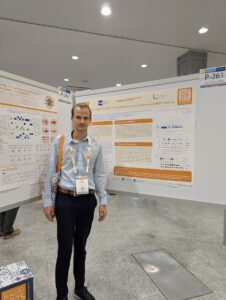
PhD researcher, Vrije Universiteit Brussel, Belgium
Dries was thrilled to present his research for the first time to an international audience. “Standing next to my poster and being able to explain my work to researchers from different backgrounds was a nice experience,” he says, “and it was incredibly rewarding to see that there was genuine interest in my work.” The poster session also allowed him to meet researchers working on similar or complementary topics, sparking engaging conversations and potential future collaborations.
As his first international congress, EACR 2025 exposed him to a wide range of subtopics and parallel sessions that broadened his perspective. He was particularly struck by the symposium on extrachromosomal circular DNA, which highlighted its role in oncogene amplification and tumour evolution. “The talks really opened my eyes to how these structures could play a key role in cancer development, progression and treatment resistance,” he says.
6. Elif Merve Aydın

Postdoctoral researcher, Koç University, İstanbul, Türkiye
A personal highlight of the congress for Elif was presenting the final version of her PhD research. “After years of hard work, it felt like introducing something deeply personal to the scientific world,” she says, “and the positive feedback from senior researchers and peers reminded me of the value of my work.” She also treasured connections made at the Early Career Researchers’ Symposium and during her poster session, where she built a circle of supportive peers who shared ideas, tips and encouragement.
The congress’ welcoming and professional atmosphere made her feel fully included in the research community, inspiring new experiments, collaborations and career ideas. She returned home energised, sharing both scientific insights and networking strategies with colleagues, and preparing to give a talk at her institution. “The congress gave me renewed motivation and hope for the future,” she says, “and showed me that I’m not alone in facing scientific and emotional challenges.”
7. María Gallardo-Gómez
Postdoctoral researcher, Galicia Sur Health Research Institute (IISGS), Vigo, Spain
María was thrilled to present her work, feeling honoured among so many high-quality studies. “Among so many interesting topics and high-quality studies, I feel truly honoured to have had such an opportunity,” she says. The presentation offered valuable feedback, increased the visibility of her research, and sparked interest from peers, potentially leading to future collaborations. She also enjoyed reconnecting with former colleagues and meeting a potential collaborator whose work aligns with her current projects.
The diversity of topics and expert speakers boosted her confidence as a researcher. Engaging with peers helped her overcome some of the impostor syndrome that early-career female scientists often face. “Presenting our research and engaging with peers helped me let go, at least a little, of the impostor syndrome,” she says, “and it was empowering to feel part of the conversation.” She returned home with new ideas for analyses, including transcription factor enrichment inspired by Joanna Achinger’s talk, and felt motivated by the visibility of strong female role models throughout the event.
8. Sarah Trouvilliez
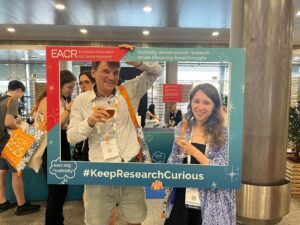
Postdoctoral researcher, Institute of Pharmacology, Medical University of Vienna, Vienna, Austria
During the congress, Sarah secured a collaboration for a CXCR4 inhibitor, a key tool for her project. This connection, made during the poster session, could significantly advance her investigation into CXCR4’s role in her phenotype. The event’s scale and breadth stood out, allowing her to explore topics beyond her immediate field and gain a broader perspective on her work.
She found inspiration in seeing early-career scientists already leading their own research groups, which encouraged her to think more boldly about her goals. Conversations with peers on brain metastasis models reinforced the gaps in translational research and affirmed her project direction. “It was energising to see others facing similar challenges and discussing ways to improve model systems,” she says, “and it has motivated me to continue pursuing this work.”
Interested in EACR Conferences and further Travel Grants?
We organise a variety of excellent cancer research conferences, both in person and virtual, where the latest research topics and interaction for participants are the very highest priorities.
To assist researchers who need financial assistance to attend our in-person conferences, we offer EACR-Worldwide Cancer Research Travel Grants. Recipients also get the opportunity to present their work as an oral or poster presentation. Each Travel Grant includes a free registration and funds to support travel and accommodation costs.
Make sure you add the dates of upcoming EACR Conferences to your diary now. Don’t forget we offer EACR member discounts on all of our registration fe


